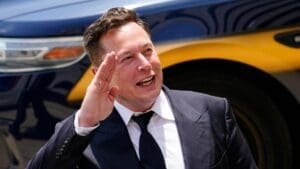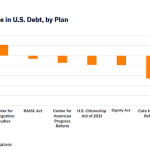
When Olivia Lott left her London job for a village in rural Devon, she expected a calmer pace of life—but not the near total absence of mobile reception.
With patchy phone signals forcing her to trek up hillsides just to make a call, Lott eventually resorted to installing a landline, a rarity among her fellow millennials. “Sometimes I like the peace,” she says, “but if my Wi-Fi goes down I’m stuck. I have to go into town to find a café to work from.”
This digital isolation may soon be a relic of the past. Entrepreneurs like Elon Musk are on the cusp of reshaping connectivity in Britain’s rural regions through satellite technology. Musk’s Starlink, which currently beams home internet signals from space, is poised to launch a new generation of satellites capable of directly linking to ordinary mobile phones. The vision: end “not spots” forever, transforming remote hillsides and valleys into fully connected zones.
Starlink is not alone. The California-based SpaceX subsidiary is locking horns with rivals—satellite operators backed by telecoms giants and tech behemoths—who share an ambition to fix blackouts from hundreds of miles above Earth. If these plans materialise, the idea of losing mobile signal in the remote British countryside could become unimaginable.
Yet the race to create “direct-to-device” satellite services is already turbulent, marked by regulatory battles and accusations of “misinformation.” Rival satellite firms have challenged Starlink’s bids for US approval, while SpaceX has shot back at what it calls an orchestrated campaign to block its progress. The stakes are high, and the outcome could redraw telecoms markets worldwide.
In the UK, regulators and networks are warily eyeing the coming disruption. Inertia and soaring costs have long hindered rural connectivity improvements. One in five areas lacks reliable mobile coverage, with one in ten seeing no 4G signal at all. Even as government-backed schemes and shared rural networks try to narrow the digital divide, progress remains slow.
The satellite revolution could change that calculation. Technological leaps mean pocket-sized smartphones could soon latch onto signals from constellations of low Earth orbit satellites. Plummeting launch costs—driven by Musk’s reusable rockets—have made it commercially viable to send thousands of satellites aloft. Already, Apple has partnered with Globalstar to provide emergency text messaging via satellite. This is a foretaste: future constellations could handle mobile internet connections and even high-bandwidth video calls.
Yet the UK’s path is not straightforward. Ofcom, the telecoms regulator, aims to develop rules for satellite-to-phone connections, suggesting services might appear by late 2025 or beyond. But operators warn that British geography and regulation present hurdles. The UK’s high latitude and the difficulty in controlling “borderless” satellite signals over Europe could slow adoption. Enders Analysis, a research group, doesn’t expect full coverage in Britain until at least 2026. Moreover, incumbents fear a Trojan horse scenario. The same US tech giants helping to fill coverage gaps might become formidable competitors. Apple, which increasingly designs its own silicon, could create chipsets optimised for direct satellite links, threatening to bypass traditional networks. Starlink might leverage its broadband foothold—87,000 UK customers—to launch a “virtual” mobile network blending satellites and terrestrial signals.
For rural residents, however, these global tech machinations simply promise an end to patchy service. Once-silent corners of the countryside will buzz with connectivity, and the tether of landlines and patchy 4G may finally snap. Lott, for one, wouldn’t hesitate. “If it was put to a vote tomorrow: do you want satellites giving you signal? My answer would be yes,” she says. As the satellite wars play out in space and in regulatory corridors, one thing is clear: Elon Musk and his rivals are poised to bring the world’s remotest places online—and upend a quiet corner of British life in the process.
Read more:
Elon Musk’s Starlink set to transform rural UK connectivity as satellite race heats up






